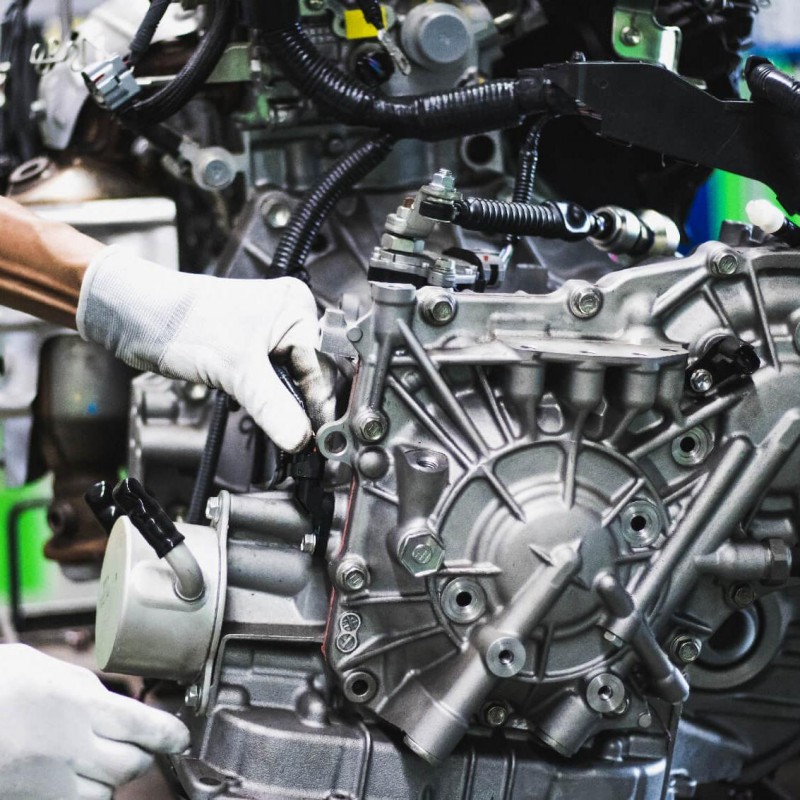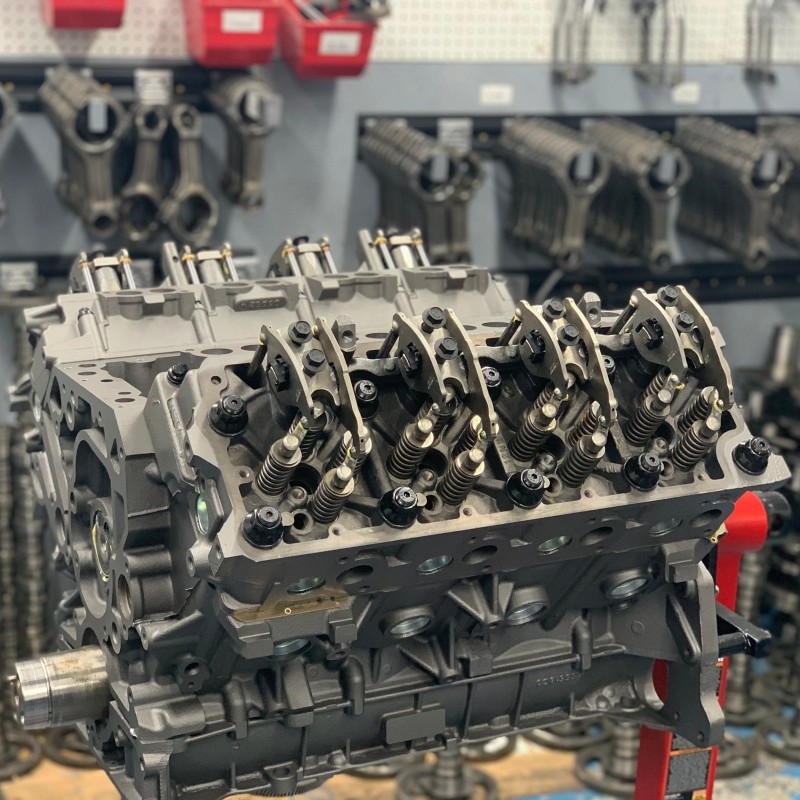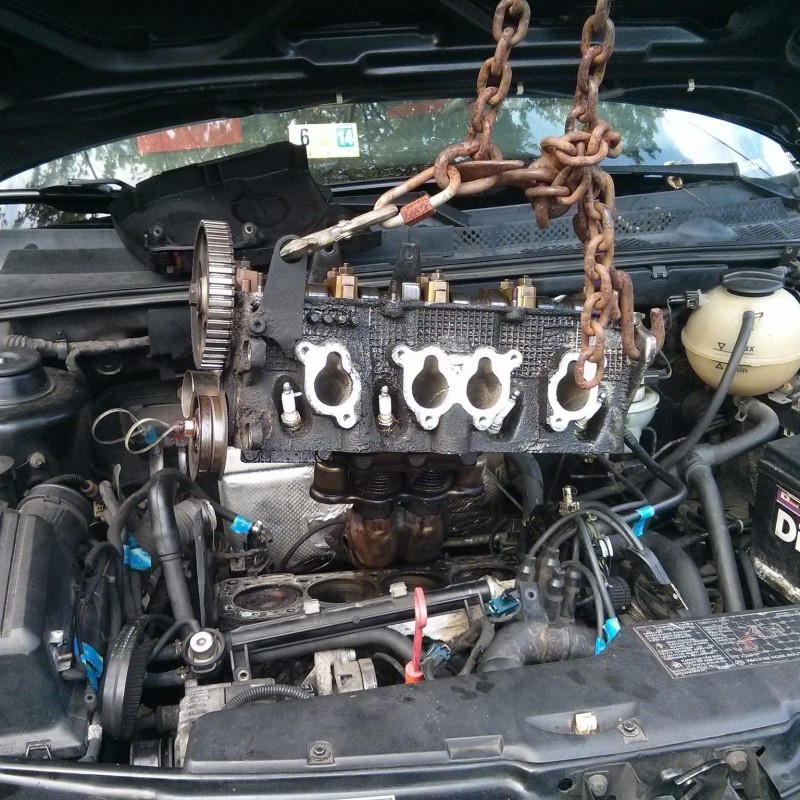The distinct rumble of a V8 engine sound has a way of capturing the hearts of car enthusiasts and casual observers alike. It’s a sound synonymous with power, performance, and American automotive culture. V8 engines have long been celebrated for their robust performance and signature auditory experience, making them a hallmark of many classic and modern muscle cars. The unique sound produced by V8 engines isn’t merely a byproduct of their design; it’s an integral part of their identity. The deep growl during an acceleration or the melodic purr while idling creates an immersive auditory experience that resonates with car lovers across generations. Understanding the v8 engine sound involves delving into the engineering principles that shape its audio profile and the emotions it elicits from drivers and spectators alike. This article will comprehensively explore the characteristics of the V8 engine sound, what makes it unique, its historical significance, the various tuning possibilities, and how it continues to influence automotive culture today.
The Mechanics Behind the V8 Engine Sound
To truly appreciate what makes the v8 engine sound so captivating, we must first understand the mechanics at play. This involves diving into the engine’s configuration, the role of exhaust systems, and how these components contribute to that distinctive auditory signature.
Engine Configuration
The V8 engine consists of eight cylinders arranged in a V formation. This design allows for greater displacement and more power than four or six-cylinder engines, contributing to the unique sound it produces.
- Firing Order: The firing order of the cylinders significantly affects the sound produced by the engine. In a V8, the firing order helps to create a rhythm and harmony that equates to that familiar rumble. A typical V8 might fire every 90 degrees of crankshaft rotation, which ensures an even distribution of sound waves.
- Cylinders: With eight cylinders working in harmony, the sound waves produced can create a fuller and richer sound. The interplay of sounds from multiple cylinders firing in quick succession results in that deep, throaty growl that V8 enthusiasts love.
Exhaust System Dynamics
The exhaust system plays a critical role in shaping the overall sound profile of a V8 engine. Various components contribute to the engine’s voice, as seen below:
- Headers: The headers direct the flow of exhaust gases away from the engine. Their design can greatly influence the sound, with long-tube headers generally producing a louder and more aggressive tone compared to short-tube variations.
- Mufflers: Mufflers minimize noise while allowing certain frequencies to escape. High-performance mufflers, such as straight-through or chambered designs, can enhance the throaty rumble of a V8, while quieter mufflers produce a more subdued sound.
- Exhaust Tips: The shape and size of exhaust tips can also contribute to the tuning of the V8 engine sound. Larger tips generally allow for better flow and can enhance the depth of the sound.
Camshaft Influence
The camshaft dictates how the engine breathes and plays another vital role in determining the V8 engine sound. It controls the timing and lift of the engine valves, ultimately influencing the sound characteristics.
- Performance Cams: Upgrading to a performance cam can create a more aggressive idle note and provide a throatier sound during acceleration. The changes in valve timing and lift can lead to more robust sound outputs, thereby enhancing the V8 signature.
- Lobe Separation Angle: The camshaft’s lobe separation angle impacts the engine’s harmonic frequencies, affecting the timbre of the sound. A narrower angle typically results in a rougher idle, while a wider angle offers a smoother output.
Understanding these mechanical aspects enables enthusiasts to appreciate why the v8 engine sound has such a distinctive charm, setting it apart from other engine configurations.
The Emotional Connection to the V8 Engine Sound
The v8 engine sound goes beyond mechanics and performance. It evokes emotions and memories that resonate deeply with car enthusiasts. Here are some psychological factors contributing to this attachment:
Nostalgia and Cultural Impact
For many, the sound of a V8 engine brings back feelings of nostalgia. Iconic muscle cars like the Ford Mustang, Chevrolet Camaro, and Dodge Charger have left a lasting impression on automotive culture.
- Classic American Cars: The V8 engine is synonymous with classic American muscle. As such, it elicits memories of iconic movies, car shows, and family road trips, evoking a sense of pride in the open road and the tradition of American car manufacturing.
- Muscle Car Era: The muscle car era of the 1960s and 1970s celebrated power, style, and speed. The rumble of V8s became a defining aspect of this cultural movement, leading to a deep-rooted appreciation that persists to this day.
Performance and Power Perception
The V8 engine sound communicates power in a way few other configurations can replicate. The distinctive growl and roaring acceleration create a sense of excitement and thrill for drivers and spectators alike.
- Driver Empowerment: For drivers, the sound of a V8 engine revving can ignite feelings of confidence and courage. The connection between driving performance and the car’s sound creates an empowering experience on the road.
- Spectator Experience: For car enthusiasts observing a V8 engine in action—whether at a race, car show, or cruising down the street—the auditory vibrations reinforce the perception of speed and performance. This contributes to the overall excitement surrounding automotive culture.
Community and Camaraderie
The V8 engine sound also fosters community and camaraderie among enthusiasts. Sharing a passion for cars and car culture creates strong bonds among individuals.
- Car Meets and Expos: Enthusiasts often gather at car meets to showcase their vehicles. The unique sound of various V8 engines becomes a unifying factor that draws in crowds and fuels conversations.
- Social Media and Content Creation: Platforms like YouTube and Instagram provide a space for individuals to share their love for cars, showcasing the sound of V8s in action. This exposure fosters a sense of community among users who appreciate automotive craftsmanship.
Understanding the emotional connection car enthusiasts have with the v8 engine sound highlights the ways in which it enriches automotive culture and the sense of belonging it fosters.

The Science Behind the Sound
The sound produced by a V8 engine is not just an auditory experience; it is rooted in physics and acoustics. By exploring the science behind the sound, you can gain deeper insights into what makes the V8 engine sound so distinct.
Frequency and Wavelength
Sound waves are characterized by frequency and wavelength, which together govern the pitch and tone of the sound produced. For V8 engines, the following concepts are essential:
- Harmonics: The multiple frequencies created by the simultaneous firing of cylinders produce harmonics that contribute to the overall sound. The result is a richer, more complex auditory experience.
- Fundamental Frequency: The fundamental frequency determines the primary tone of the sound. V8 engines typically fall within specific frequency ranges that create that iconic low rumble.
Sound Wave Interference
When examining engine sounds, understanding sound wave interference is crucial. This phenomenon can enhance or diminish specific frequencies:
- Constructive Interference: When sound waves combine positively, they amplify certain frequencies, boosting the V8’s characteristic sound. This can happen through engine design or tuning.
- Destructive Interference: In contrast, when sound waves cancel each other out, certain frequencies may diminish. Engineers aim to design exhaust systems that minimize this occurrence.
Acoustic Design Considerations
Manufacturers often utilize acoustic design principles to influence the sound of V8 engines. Techniques include:
- Tuning Pipes: The use of tuning pipes in exhaust systems can help enhance and control specific frequencies, creating a unique sound tailored to the desired auditory experience.
- Resonators: Resonators can be added to exhaust systems to produce a more refined sound profile, accentuating the desirable frequencies while suppressing unwanted noise.
By understanding the science behind the sound, enthusiasts can appreciate the engineering efforts that go into creating the unmistakable sound of the V8 engine.
Exploring Popular V8 Engine Sounds
The allure of the V8 engine sound lies in its immense variety, influenced by factors like engine configuration and tuning. Let’s explore some popular V8 engine sounds and what makes them unique.
Classic American Muscle Cars
- Ford Mustang: The Ford Mustang’s V8 engine delivers a deep, throaty growl that has become iconic. The rumble, particularly from models equipped with performance exhaust systems, can evoke feelings of nostalgia and excitement among enthusiasts.
- Chevrolet Camaro: The sound of the Camaro’s V8 engine is aggressive and powerful, perfectly suited to its sporty design. The distinct roar during acceleration exemplifies the car’s muscle heritage.
Exotic Performance Cars
- Lamborghini Huracán: Beyond American muscle, an exotic offering like the Lamborghini Huracán features a V8 engine that produces a distinctive high-pitched wail. Its unique sound differentiates it from traditional muscle cars, showcasing the diversity in V8 sounds.
- Aston Martin Vantage: Known for its sleek design, the Aston Martin Vantage roars to life with a refined V8 sound. The combination of luxury and performance delivers a sophisticated auditory experience.
Modern Trucks and SUVs
- Ford F-150 Raptor: The F-150 Raptor’s V8 engine delivers a commanding sound at idle and during acceleration. The growling tones reflect its rugged capabilities, making it popular among truck enthusiasts.
- Chevrolet Silverado: The Silverado’s V8 engine showcases a powerful rumble characteristic of full-size trucks. This sound contributes to its bold reputation both on and off-road.
Customized V8 Exhaust Systems
Many enthusiasts take sound customization to the next level by investing in aftermarket exhaust systems. This individuality enhances the V8 engine sound, allowing drivers to personalize their experience.
- Performance Exhaust Kits: These kits can amplify the sound, adding aggressive tones that differentiate vehicles from stock models. This customization reflects personal taste and driving style.
- Cutouts and Bypass Valves: Some enthusiasts install cutouts or bypass valves to modify exhaust flow. This allows for increased volume at the touch of a button, enabling owners to choose when to unleash the full power of their V8.
Exploring the variety of V8 engine sounds showcases how personal preference and automotive culture combine to create unique auditory experiences.
Maintaining the V8 Engine for Optimal Sound and Performance
Ensuring your V8 engine sounds great requires proper maintenance and care. By following essential maintenance practices, you can preserve the integrity of both performance and sound.
Regular Oil Changes
Changing the oil regularly is crucial for engine performance. Fresh oil ensures that all components are lubricated effectively, preventing excessive wear and tear.
- Why Oil Matters: Dirty or worn-out oil can lead to increased friction, causing the engine to sound rougher. Keeping your oil clean helps maintain optimal performance and a smooth sound.
Exhaust System Inspection
Regularly inspecting the exhaust system can prevent unwanted noise and performance issues. A well-maintained exhaust system enhances sound quality and ensures efficient gas flow.
- Check for Leaks: Exhaust leaks can alter the sound and reduce performance. If you notice changes in your engine sound, it may be time to inspect for leaks or issues.
Tuning and Calibration
If you’ve made modifications to your V8 engine or exhaust system, having a professional tune can optimize performance. Proper tuning ensures that your engine runs smoothly and produces the best sound possible.
- Aftermarket Upgrades: Many enthusiasts opt for performance upgrades that may require recalibration. Working with a skilled technician can help you get the best results.
Air and Fuel Filters
Maintaining air and fuel filters is essential for ensuring optimal combustion. Clean filters allow for better airflow and fuel efficiency, contributing to improved engine performance and sound.
- Regular Replacements: Change filters as recommended by the manufacturer or whenever you notice decreased performance. Proper airflow enhances combustion, leading to a cleaner sound.
Running Quality Fuel
Using high-quality fuel designed for your engine type can positively impact performance. Cheaper fuels might contain additives that can lead to knocking or rough idling, affecting both how the engine runs and how it sounds.
- Fuel Recommendations: Always follow manufacturer recommendations for fuel grade. Using the right fuel helps maintain performance and the distinctive sound that makes V8 engines special.
By adopting these maintenance practices, you can keep your V8 engine in prime condition, ensuring that it produces the memorable sound you love.

Conclusion
The captivating sound of a V8 engine represents more than just an auditory experience; it embodies power, performance, and a deep connection among automotive enthusiasts. Understanding the mechanics, emotional connections, and science behind the v8 engine sound offers valuable insights into why it resonates so strongly with drivers and onlookers alike.
As V8 engines continue to evolve alongside advancements in technology, the passion for their distinctive sound will remain a cherished aspect of automotive culture. By properly maintaining your V8 and appreciating the variations in sound across different models, you can continue to experience the excitement that only these powerful engines can deliver.
Striking the right balance between performance and sound gives every driver the opportunity to enjoy the iconic growl of a V8 engine. Whether you’re inside a muscle car on a Sunday drive or participating in a local car meet, the presence of V8 engines and their unforgettable sounds will linger in the air, filling the hearts of enthusiasts with nostalgia and pride.
Tags: automotive culture, engine sound engineering, V8 performance tuning